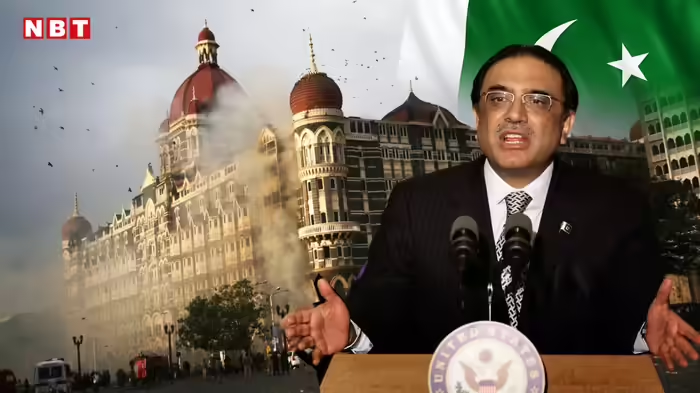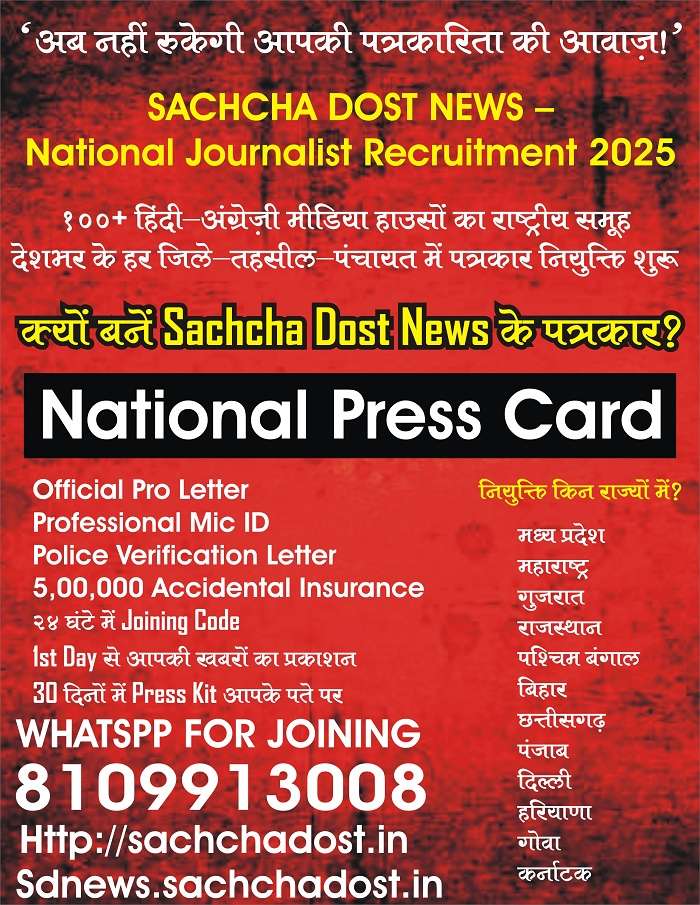
New Delhi: A sensational claim has emerged regarding the 2008 Mumbai attacks (26/11) from Farhatullah Babar, former advisor and current spokesperson of Pakistani President Asif Ali Zardari. In his new book, Babar alleges that during Zardari’s previous tenure, his “No First Use” nuclear weapons offer to India angered Pakistan’s powerful intelligence agency, the ISI, which allegedly prompted the Mumbai attacks.
ISI Angered by Zardari’s Statement
India Today reported, citing Babar’s book “The Zardari Presidency: Now It Must Be Told”, that during a media conference in Delhi, Zardari told Indian journalist Karan Thapar in a satellite interview that his “No First Use” nuclear offer to India had provoked the “war-hungry elements” within Pakistan.
Pakistani Army Reacts to ‘No First Use’ Offer
According to Babar, Zardari’s assurance that Pakistan would also adopt a “No First Use” policy created unrest within the Pakistani military. As per the book, within four days of the interview, on 26 November 2008, militants carried out multiple attacks in Mumbai, killing 166 people.
Peace Efforts Thwarted
Babar claims the attacks were a direct response by ISI-controlled militant factions to sabotage any potential peace initiatives with India. He asserts that this incident brought the two nations close to war in subsequent years, dashing hopes of lasting peace.
Discrepancies Between Claims and Facts
However, the report also notes inconsistencies between these claims and the actual timeline. Zardari’s “No First Use” offer was made on 22 November 2008, whereas ten heavily armed Lashkar-e-Taiba militants had already left Karachi by sea for Mumbai on 21 November 2008 to carry out the attacks.
While Babar’s account raises provocative questions about internal military and intelligence dynamics, the timeline casts doubt on a direct link between Zardari’s offer and the Mumbai attacks.
If you want, I can also condense this into a sharper, punchy newspaper column format with a bold headline and subheading suitable for front-page publication. Do you want me to do that?New Delhi: A sensational claim has emerged regarding the 2008 Mumbai attacks (26/11) from Farhatullah Babar, former advisor and current spokesperson of Pakistani President Asif Ali Zardari. In his new book, Babar alleges that during Zardari’s previous tenure, his “No First Use” nuclear weapons offer to India angered Pakistan’s powerful intelligence agency, the ISI, which allegedly prompted the Mumbai attacks.
ISI Angered by Zardari’s Statement
India Today reported, citing Babar’s book “The Zardari Presidency: Now It Must Be Told”, that during a media conference in Delhi, Zardari told Indian journalist Karan Thapar in a satellite interview that his “No First Use” nuclear offer to India had provoked the “war-hungry elements” within Pakistan.
Pakistani Army Reacts to ‘No First Use’ Offer
According to Babar, Zardari’s assurance that Pakistan would also adopt a “No First Use” policy created unrest within the Pakistani military. As per the book, within four days of the interview, on 26 November 2008, militants carried out multiple attacks in Mumbai, killing 166 people.
Peace Efforts Thwarted
Babar claims the attacks were a direct response by ISI-controlled militant factions to sabotage any potential peace initiatives with India. He asserts that this incident brought the two nations close to war in subsequent years, dashing hopes of lasting peace.
Discrepancies Between Claims and Facts
However, the report also notes inconsistencies between these claims and the actual timeline. Zardari’s “No First Use” offer was made on 22 November 2008, whereas ten heavily armed Lashkar-e-Taiba militants had already left Karachi by sea for Mumbai on 21 November 2008 to carry out the attacks.
While Babar’s account raises provocative questions about internal military and intelligence dynamics, the timeline casts doubt on a direct link between Zardari’s offer and the Mumbai attacks.
If you want, I can also condense this into a sharper, punchy newspaper column format with a bold headline and subheading suitable for front-page publication. Do you want me to do that?New Delhi: A sensational claim has emerged regarding the 2008 Mumbai attacks (26/11) from Farhatullah Babar, former advisor and current spokesperson of Pakistani President Asif Ali Zardari. In his new book, Babar alleges that during Zardari’s previous tenure, his “No First Use” nuclear weapons offer to India angered Pakistan’s powerful intelligence agency, the ISI, which allegedly prompted the Mumbai attacks.
ISI Angered by Zardari’s Statement
India Today reported, citing Babar’s book “The Zardari Presidency: Now It Must Be Told”, that during a media conference in Delhi, Zardari told Indian journalist Karan Thapar in a satellite interview that his “No First Use” nuclear offer to India had provoked the “war-hungry elements” within Pakistan.
Pakistani Army Reacts to ‘No First Use’ Offer
According to Babar, Zardari’s assurance that Pakistan would also adopt a “No First Use” policy created unrest within the Pakistani military. As per the book, within four days of the interview, on 26 November 2008, militants carried out multiple attacks in Mumbai, killing 166 people.
Peace Efforts Thwarted
Babar claims the attacks were a direct response by ISI-controlled militant factions to sabotage any potential peace initiatives with India. He asserts that this incident brought the two nations close to war in subsequent years, dashing hopes of lasting peace.
Discrepancies Between Claims and Facts
However, the report also notes inconsistencies between these claims and the actual timeline. Zardari’s “No First Use” offer was made on 22 November 2008, whereas ten heavily armed Lashkar-e-Taiba militants had already left Karachi by sea for Mumbai on 21 November 2008 to carry out the attacks.
While Babar’s account raises provocative questions about internal military and intelligence dynamics, the timeline casts doubt on a direct link between Zardari’s offer and the Mumbai attacks.
If you want, I can also condense this into a sharper, punchy newspaper column format with a bold headline and subheading suitable for front-page publication. Do you want me to do that?
Discover more from SD NEWS agency
Subscribe to get the latest posts sent to your email.
